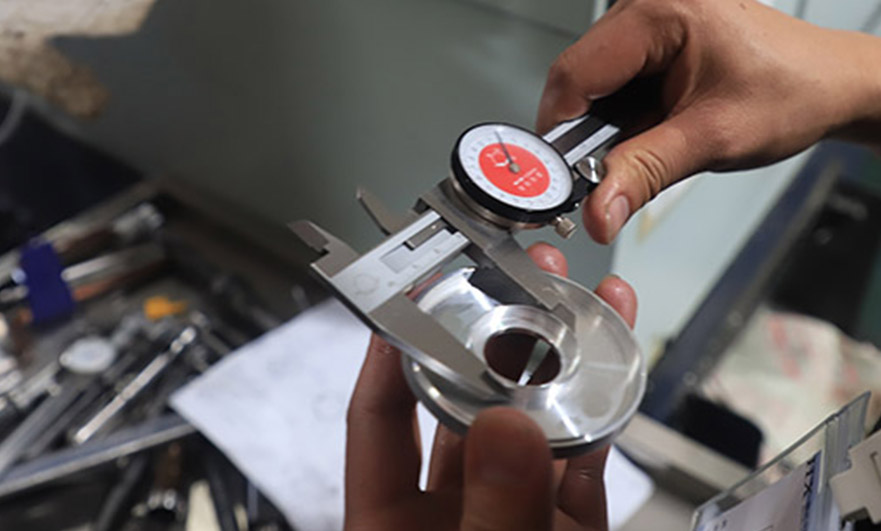
When it comes to product development, precision is everything. CNC machining tolerances determine how accurately a part’s dimensions align with its design specifications. Whether you are building aerospace components, automotive parts, or medical devices, tolerances directly affect product performance, cost, and reliability.
Working with an experienced partner like BOONA Prototypes, which offers CNC machining, rapid prototyping, and low-volume manufacturing, ensures your parts meet the required balance of accuracy, functionality, and cost.
I. What Are CNC Machining Tolerances?
CNC machining tolerances represent the allowable deviation from a part’s nominal dimension. For example, if a shaft is designed to be 10.00 mm with a tolerance of ±0.05 mm, the acceptable range is 9.95–10.05 mm.
There are two main types of tolerances:
-
General Tolerances (standard production) – Less strict, used for non-critical parts.
-
Tight/Precision Tolerances – Applied to high-performance parts requiring exact fits.
II. Why Tolerances Matter in Product Performance
-
Fit and Assembly – Parts with incorrect tolerances may not fit together, causing assembly issues.
-
Durability – Improper tolerances can lead to premature wear, vibration, or mechanical failure.
-
Functionality – In high-stress applications (like engines or implants), precision ensures safety and performance.
-
Cost Control – Overly tight tolerances increase costs due to slower machining speeds and higher inspection requirements.
III. CNC Machining Tolerance Standards
Different industries use different tolerance standards. Below is a reference table:
| Tolerance Type | Typical Value (inches) | Typical Value (mm) | Application Example |
|---|---|---|---|
| Standard CNC Tolerance | ±0.005 in | ±0.127 mm | General mechanical parts |
| Precision Tolerance | ±0.001 in | ±0.0254 mm | Aerospace, automotive gears |
| Ultra-Precision | ±0.0005 in | ±0.0127 mm | Medical implants, optics |
📌 At BOONA Prototypes CNC Machining Services, tolerances as tight as ±0.0005 in can be achieved depending on materials and design requirements.
IV. Factors That Influence CNC Machining Tolerances
-
Material Selection – Metals (aluminum, steel) generally achieve tighter tolerances than plastics.
-
Part Geometry – Complex designs may require looser tolerances.
-
Machining Process – CNC milling, turning, and EDM provide different tolerance capabilities.
-
Inspection Methods – CMM (Coordinate Measuring Machine) is often required for ultra-precision parts.
V. Balancing Cost and Performance
Not every feature of a part needs tight tolerances. For example, cosmetic surfaces can have looser tolerances, while mating surfaces may require high precision. Over-specifying tolerances can increase costs by 20–40% without improving actual performance.
Partnering with experts at BOONA Prototypes ensures tolerances are applied where they matter most—helping you save costs while maintaining performance.
FAQs
Q1: What do CNC machining tolerances mean?
A: They define the allowable variation in a part’s dimensions to ensure correct fit and function.
Q2: Why are tight tolerances important?
A: They improve precision and reliability, which is critical for aerospace, medical, and automotive applications.
Q3: What happens if tolerances are too loose?
A: Parts may not fit properly, leading to assembly issues, vibration, and reduced product life.
Q4: How do tolerances affect production costs?
A: Tighter tolerances increase machining time, tool wear, and inspection costs.
Q5: What is the standard CNC machining tolerance?
A: Typically ±0.005 in (±0.127 mm), but precision machining can reach ±0.0005 in (±0.0127 mm).
Q6: Do tighter tolerances always mean better performance?
A: No. Overly tight tolerances may increase costs without improving functionality.
Q7: Can different materials affect tolerances?
A: Yes, metals usually hold tighter tolerances than plastics, which may deform under temperature changes.
Q8: How do I choose the right tolerance for my product?
A: It depends on the part’s function, industry standards, and budget. A manufacturing partner like BOONA Prototypes can guide you.
Conclusion
CNC machining tolerances play a vital role in balancing precision, performance, and cost. By understanding how tolerances impact your product, you can avoid costly design mistakes and ensure optimal performance.
Whether you need standard or ultra-precision tolerances, working with BOONA Prototypes guarantees that your parts meet industry standards and achieve the perfect balance of quality and cost-effectiveness.



